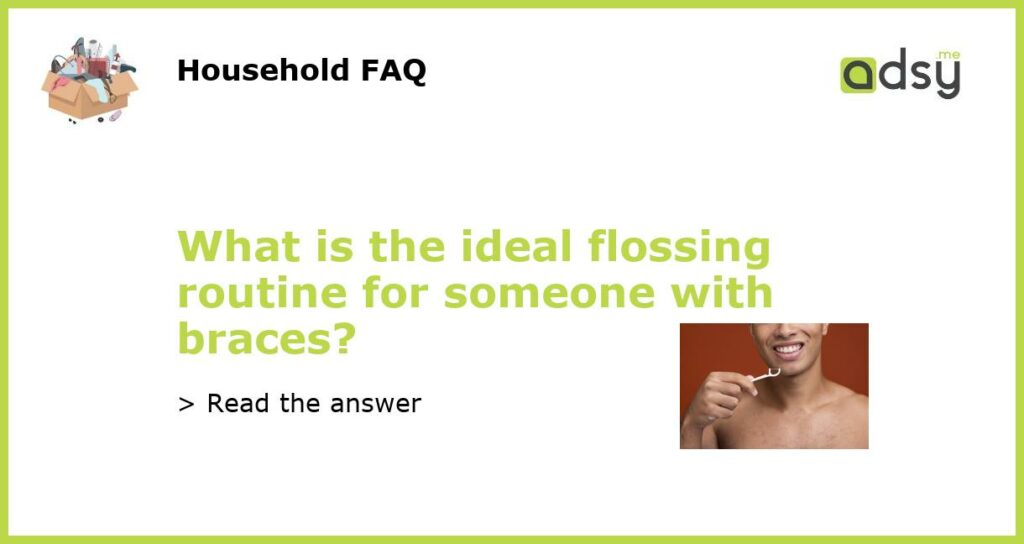Why flossing with braces is important
Braces offer a great way to correct teeth alignment issues and enhance your oral hygiene. However, they can also be a challenge to maintain, and flossing can be particularly problematic. Braces tend to trap food particles and debris between the teeth, creating a buildup of plaque that can lead to tooth decay and gum disease. Flossing is, therefore, crucial to keep your braces and teeth clean, but what is the ideal flossing routine to adopt?
Start with the right tools
The right flossing tools can make your flossing routine more efficient and effective. To floss with braces, you will need floss threaders, dental wax, and orthodontic floss. Floss threaders are used to help guide the floss between your teeth and braces, while dental wax helps protect your braces from damage. Orthodontic floss, on the other hand, is thicker and sturdier than regular floss and can easily clean between your braces.
Adopt the right technique
Once you have the right tools, it’s time to adopt the right flossing technique. Start by threading the floss under the wire of your braces, then gently slide it between your teeth in a back-and-forth motion. Be gentle as you slide the floss up and down each tooth, making sure to go below the gum line and remove any plaque or debris. Repeat this process for each tooth, and be sure to rinse your mouth out with water afterward.
Stay consistent
Consistency is key when it comes to flossing with braces. Aim to floss at least once a day, ideally before bed, to remove any buildup of plaque or debris that may have accumulated throughout the day. This will also reduce the risk of cavities or gum disease developing. Make flossing a habit that you commit to, and over time, it will become second nature.
Regular visits to the dentist
Finally, regular visits to your dentist are essential to maintain healthy teeth, especially when you have braces. They can assess your flossing routine and provide you with feedback to make it more effective. They can also perform a professional clean to remove any stubborn plaque or tartar buildup and monitor the health of your gums and teeth.






